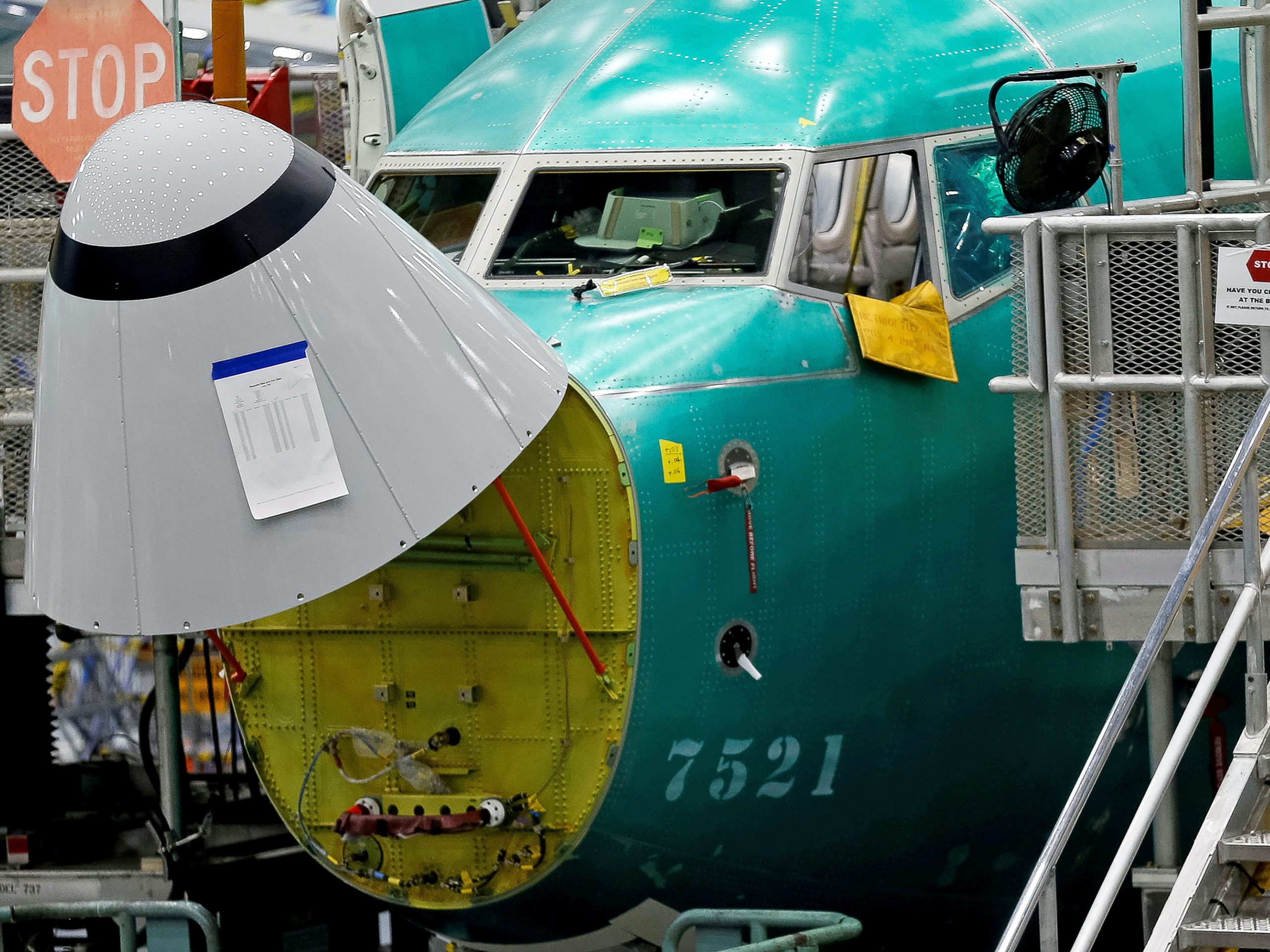- Messages show Boeing employees’ frustration with higher-ups, company culture, and consistent failures on Boeing’s 737 Max program.
- Frequent program missteps seemed to weigh heavily on overworked employees, according to the emails.
- Some employees appeared to take pride in deliberately misleading customers and regulators regarding additional training.
- The messages suggest the Boeing 777X program has some of the same issues.
- Visit Business Insider’s homepage for more stories.
Internal correspondences from Boeing employees regarding the Boeing 737 Max program that were obtained by Reuters gave a window into what employees may have really thought about the program they were working on and how Boeing’s culture contributed when it came to building aircraft.
The messages, which came from over 100 pages of documents Boeing released to investigators, further suggest that the employees knew the program was flawed in its implementation, especially when making it fly similarly to the Boeing 737 NG to avoid additional training for pilots, but still deceived customers and regulators. According to the emails, some employees used bully tactics and tricks to convince customers and regulators, including what numerous messages referred to as the “Jedi mind trick.”
Tasked with such jobs as demonstrating the aircraft’s capabilities, helping fix issues, and working with suppliers, the employees were overworked and away from their families for extended periods of time, further sowing disdain for the program, according to the emails. Singapore, London, and Miami were frequent destinations for the employees, who were often away for extended periods at a time, according to the documents.
These quotes show just how badly Boeing miscalculated with its 737 Max program and how its employees paid the price while contributing to its downfall.
"This airplane is designed by clowns who in turn are supervised by monkeys."

Boeing's 737 Max program employees knew the aircraft was flawed and had fundamental issues with leadership at Boeing, according to the emails. One of the main gripes by employees was that the managers and superiors didn't have the requisite technical understanding of the aircraft and couldn't fix its problems.
"Would you put your family on a Max simulator trained aircraft? I wouldn't."
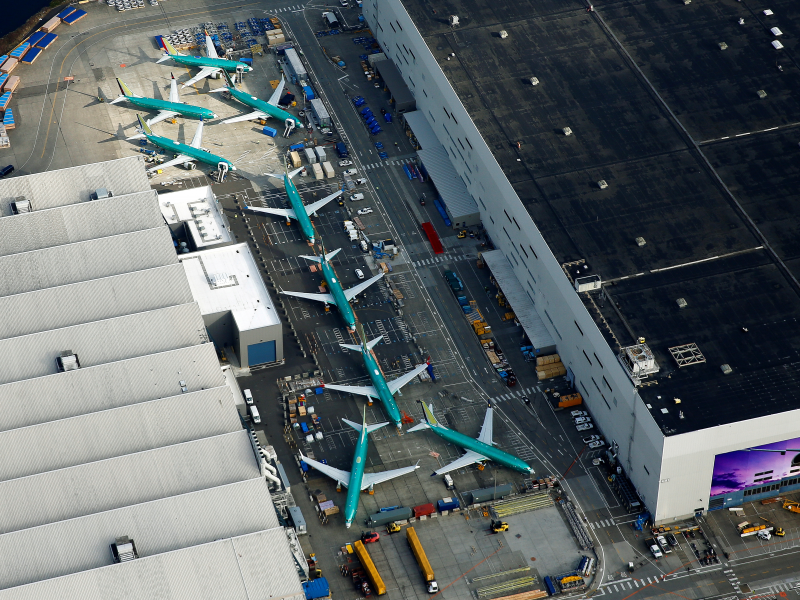
Another employee responded "No" to the question. The lack of confidence in the program is a sharp contrast from its predecessor, the Boeing 737 NG, which is one of the safest aircraft in the world.
"Fortunately I have all the skills of a used car salesman, and I have the ability to use the Jedi mind trick."

Boeing wanted to sell the Max as nearly the same aircraft as the Boeing 737 NG, despite the two being different models, according to the emails. The messages show employees constantly pointing out differences between the two but appearing to take pride in convincing customers to buy the aircraft, often referring to the tactic as the "Jedi mind trick" and negatively referring to those who were convinced as "fools."
"Looks like my Jedi mind trick worked again! These are not the droids you're looking for."

An email in the newly released documents appears to show a Boeing employee selling the similarities between the Boeing 737 Max and 737 NG to an airline 737 training employee based in Jakarta, Indonesia, where Lion Air, the airline that operated the first Boeing 737 Max 8 to crash, is based. Once the employee came around to Boeing's way of thinking, the email was forwarded to colleagues at Boeing to boast the achievement, according the the documents.
"I'll be shocked if the FAA passes this turd."

The FAA has been criticized for being too complacent when it came to evaluating the Max, with elected officials even holding hearings on the topic. Approval from the US's aviation regulator is typically seen as a gold standard, with most foreign regulators following the FAA's lead.
"We'll probably have to go to other regulators around the world to Jedi-mind trick them into accepting the FSB findings, but that shouldn't be too hard."
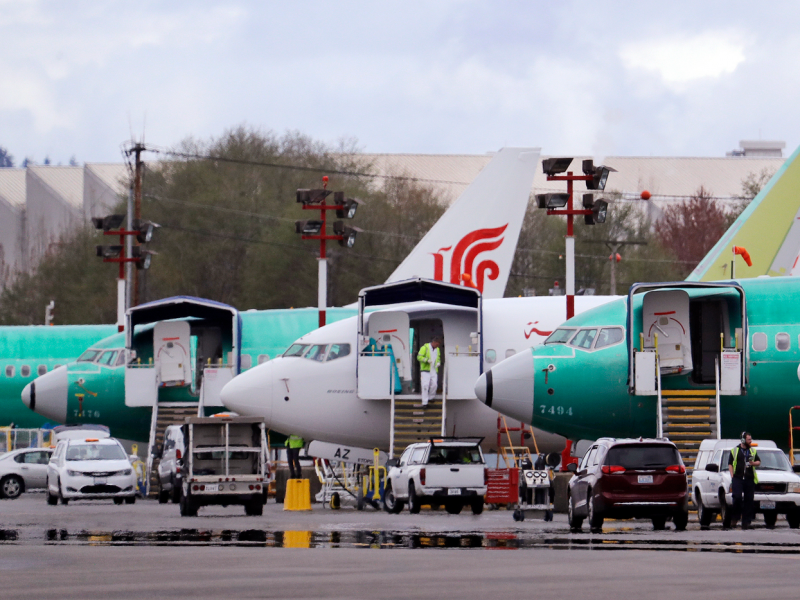
Regulators that didn't follow the FAA's lead on accepting the similarities between the two when it came to a standardized type rating then found themselves subjected to the Jedi mind trick, according to the emails.
"Well, I think with all the experience present, we should be able to gang up on them and steer it the direction we want."
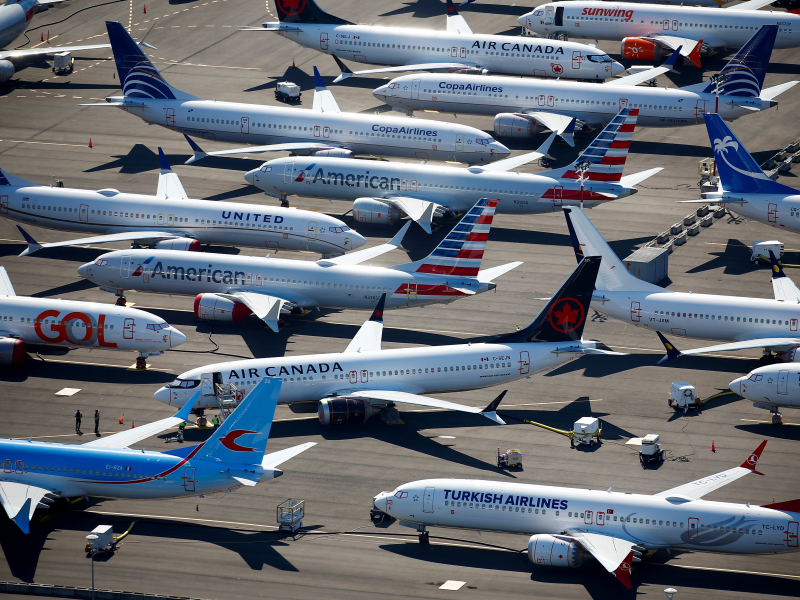
Customers and regulators that the Jedi mind trick didn't work on, however, were apparently subjected to bully tactics. Boeing's reputation before the crashes, after all, was one of trustworthiness and a history of success, especially in the prior 737 models.
"I still haven't been forgiven by God for the covering up I did last year."
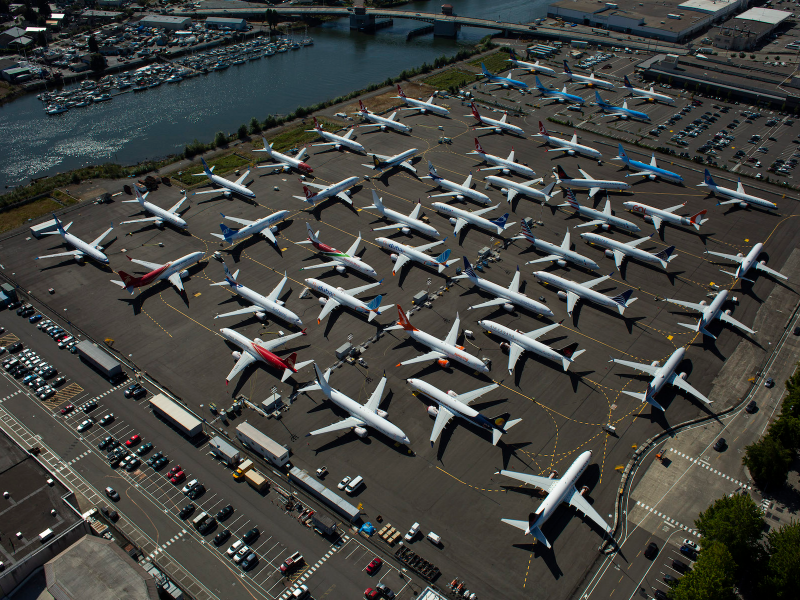
Though unclear what was being covered up, the employee could've been referred to any number of issues related to the Max.
"Cant do it one more time. the Pearly gates will be closed."
"Is it too early to start drinking."

With Boeing's supply chain and testing facilities spread across the globe, employees were often overworked and over traveled, according to the messages. Singapore, London, and Miami were frequent destinations of Boeing employees that sometimes required extended trips.
When one employee discussed getting a new bed for his back, he said on May 1: "Although I won't be sleeping in it till June at the rate I'm traveling."
"I will go and do some useful stuff. Try not to think about the s--- show."
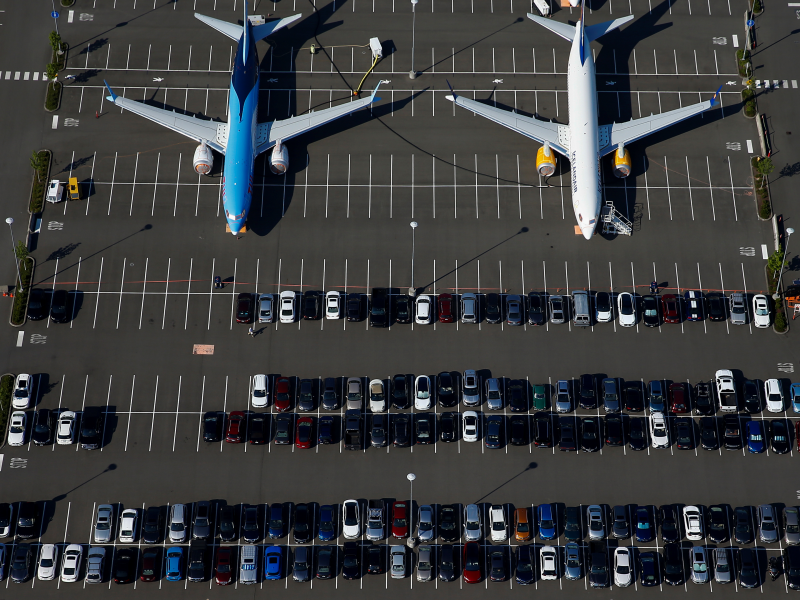
In the emails, employees expressed their dismay about working on the program and joked about how physical harm would be preferable to working on the project.
When faced with another setback, one employee said: "But to be honest, I hope I get hit by a bus between now and then, really don't want to be there."
"I don't trust many people in Boeing."
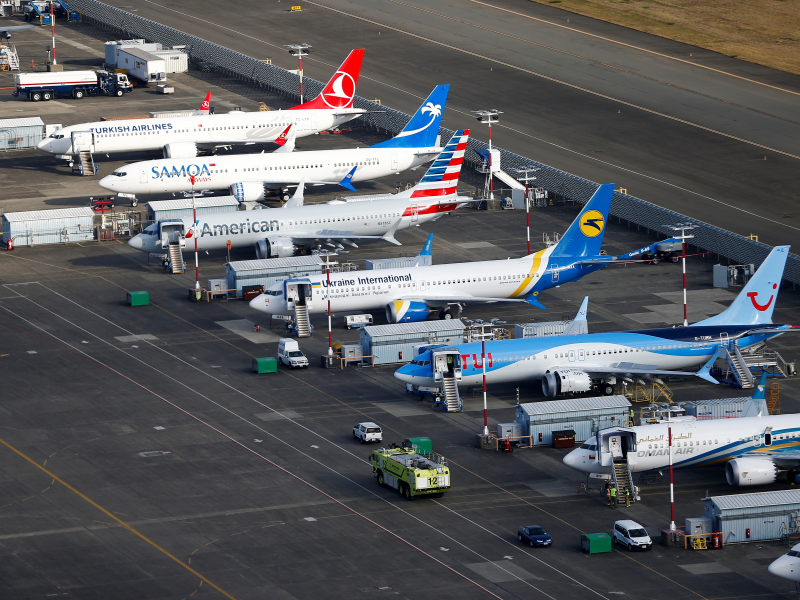
The messages also showed the division between employees working in the company, a shift that some believe started when Boeing moved its corporate office to Chicago from its Seattle production facilities, The Atlantic reported. One of the main differences is between those who produce the airplane and those who market and sell it.
"I don't know how to fix these things … it's systemic. It's culture. It's the fact that we have a senior leadership team that understand very little about the business and yet are driving us to certain objectives."
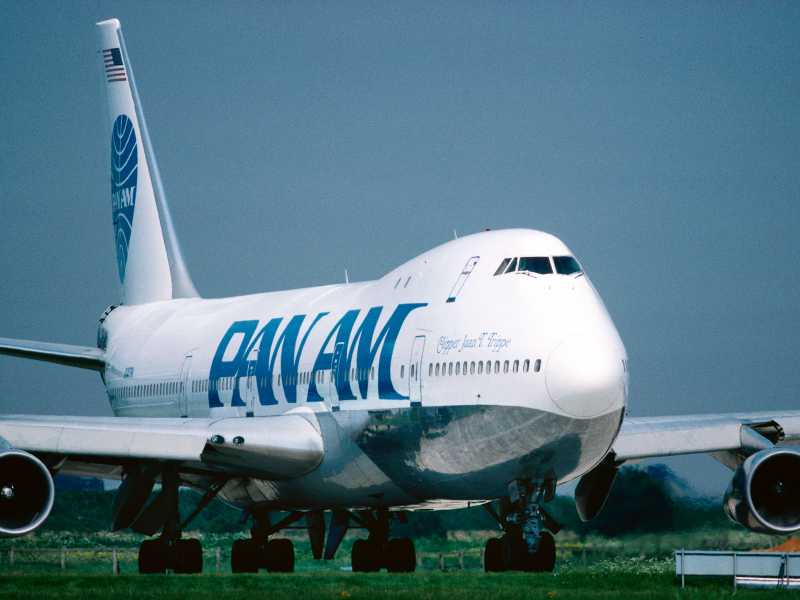
Though Boeing is regarded as the world's leader in aircraft manufacturing, with that reputation being threatened by the Max issues, most of its iconic aircraft were created in a different time, when engineers ran Boeing, according to The Atlantic.
The legacy of the Boeing 707, 737, and 747, some of the aircraft that propelled Boeing into stardom during the jet age, have now been clouded by its current mishaps, including battery issues on the Boeing 787 Dreamliner and the constant barrage of issues with the Boeing 737 Max.
"I don't know how to refer to the very, very few us on the program who are interested only in truth But it's mostly depressing that it's so few."

One of the theories presented in the messages regarding the status of the program was that problems were overlooked or under prioritized.
A large number of the problems presented in the messages stemmed from Boeing's desire to reduce additional training for pilots flying the Max and the NG to help sell the two aircraft as interchangeable, according to the documents.
"Our arrogance is our demise."

While the 737 NG aircraft are some of the best-selling aircraft in aviation history, the Max has seen few new orders since the crashes. Airbus has surged ahead, with aircraft such as the Airbus A320neo family taking orders away from Boeing. Public trust in the company and aircraft has also weakened.
"Sometimes you have to let things fail big so that everyone can identify a problem …maybe that's what needs to happen rather than just continuing to scrape by."

The program, in the eyes of some employees, had grown to where drastic change was needed. The grounding of the aircraft after two fatal crashes ended up prompting Boeing to further investigate the totality of the issues with the Max.
"Best part is we are re-starting this whole thing with the 777X with the same supplied and have signed up to an even more aggressive schedule!"

The Boeing 777X is Boeing's latest widebody project scheduled to be the next-generation variant of the current 777 family. The 777X and 737 Max projects are similar in that they both largely build off of existing products and, according to the message, have the same potential for issues due to the suppliers being used and demanding production schedules.
Its production has already been delayed, Forbes reported, prompting airlines such as Emirates to reduce its number of aircraft on order.

